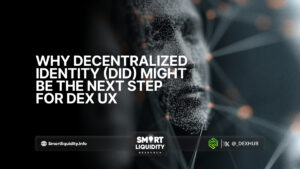Key Factors That Ensure the Security of a Decentralized Exchange


Decentralized exchanges (DEXs) offer numerous advantages over traditional centralized platforms, including increased user control and reduced reliance on third parties. However, security remains a crucial concern for any crypto platform, and DEXs are no exception.
Here are some key factors that contribute to a secure DEX:
Firstly, the underlying blockchain technology itself plays a vital role in ensuring security. Furthermore, the use of smart contracts is essential, as they automate the exchange process and reduce the risk of human error. Additionally, robust security audits by independent firms are crucial for identifying potential vulnerabilities. However, even the most secure smart contracts can be susceptible to exploits, so continuous monitoring and updates are necessary.
Moreover, a robust and transparent governance model is essential. In addition, community involvement in reviewing code and identifying issues can significantly enhance security. Similarly, DEXs should prioritize user education, as awareness of common scams and security best practices is critical. Ultimately, transparency and accountability are crucial for building trust and attracting users.
Consequently, a secure DEX should offer multiple security features. For example, two-factor authentication (2FA) can prevent unauthorized access to accounts, while multi-signature wallets enhance security by requiring multiple confirmations for transactions. Moreover, the use of cold wallets for storing the majority of funds minimizes the risk of hacking. Therefore, implementing a comprehensive security approach encompassing these factors is essential for creating a trustworthy and secure DEX.
In conclusion, building a secure DEX requires a multifaceted approach. By considering the factors mentioned above, developers can ensure the safety of users’ assets and foster a thriving ecosystem for decentralized finance.




